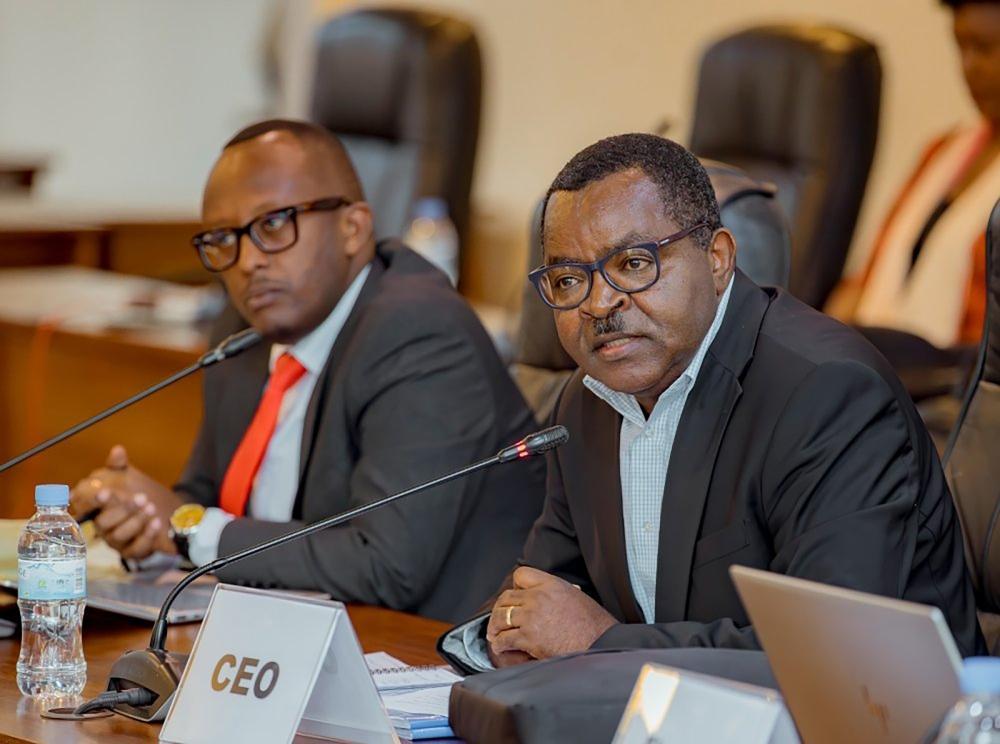Africa-Press – Rwanda. The Business Development Fund (BDF) has contributed to the creation of 330,000 jobs since its inception, according to chief executive Vincent Munyeshyaka.
Munyeshyaka said this on July 15 while appearing before the Parliament’s Public Accounts Committee (PAC), to respond to issues of financial mismanagement raised in the Auditor General’s report for the fiscal year 2023/24.
He told MPs that at least 72 per cent of projects funded by BDF run for more than two years and 68 per cent of these were registered with the Rwanda Development Board (RDB).
Munyeshyaka reaffirmed the fund’s commitment to supporting viable projects that can sustain operations and generate employment.
Since its inception, the Business Development Fund (BDF) has contributed to the creation of 330,000 jobs, according to its Chief Executive Officer, Vincent Munyeshyaka
“Since BDF’s creation, we have created 330,000 jobs, demonstrating our contribution to Rwanda’s employment agenda,” he said.
Overall, he said BDF has supported over 55,000 projects, each creating a minimum of four jobs. Additionally, since many operate within value chains—for example, a poultry farmer buying feed—partners involved in these chains also generated at least two indirect jobs as a result of their collaboration with the supported projects.
However, PAC members raised concerns over non-performing projects.
MP Eugene Mussolini called on BDF to account for approximately Rwf175 million in funds disbursed to inactive or non-existent agribusiness projects, as was found by the Office of the Auditor General.
The BDF had received the money as part the Rwanda Dairy Development Project (RDDP), which is implemented by the Ministry of Agriculture and Animal Resources and the International Fund for Agricultural Development (IFAD), to fund agri-business ventures.
Munyeshyaka explained that amount in question was provided as matching grants to beneficiaries in 2018. At the time, funds were disbursed in advance to support project implementation, particularly for equipment procurement, much of which was being imported.
This approach caused problems, he said, pointing out that beneficiaries received the money but didn’t use it as intended, and during follow-up visits, the financed businesses were not operational.
According to the agreement with IFAD and the ministry, when funds are misused, BDF is required to return the money and pursue legal action to recover it.
“So far, we have recovered Rwf10.7 million and filed lawsuits against 35 individuals who did not implement their business projects,” Munyeshyaka told MPs.
He added that BDF has since corrected this funding model. Under the Commercialization and De-risking for Agricultural Transformation project (CDAT), also implemented by the Ministry of Agriculture, funds are only released after verifying that beneficiaries have fulfilled their initial obligations.
“To date, CDAT has supported 242 projects, disbursing more than Rwf2 billion, with quarterly progress reports submitted for accountability,” he added.
In April, the Minister of Trade and Industry, Prudence Sebahizi, told lawmakers that more than Rwf120 billion had been mobilised through BDF, underscoring its importance in job creation in the country.
BDF was established in 2011 through the Development Bank of Rwanda (BRD) to support Small and Medium Enterprises (SMEs) in accessing finance as well as advisory services.
It is mandated to work with financial institutions (banks, microfinance institutions, including Savings and Credit Cooperatives – SACCOs) to cover 50-75 per cent of the collateral required by the lenders to help SMEs grow and sustain their businesses.
For More News And Analysis About Rwanda Follow Africa-Press






